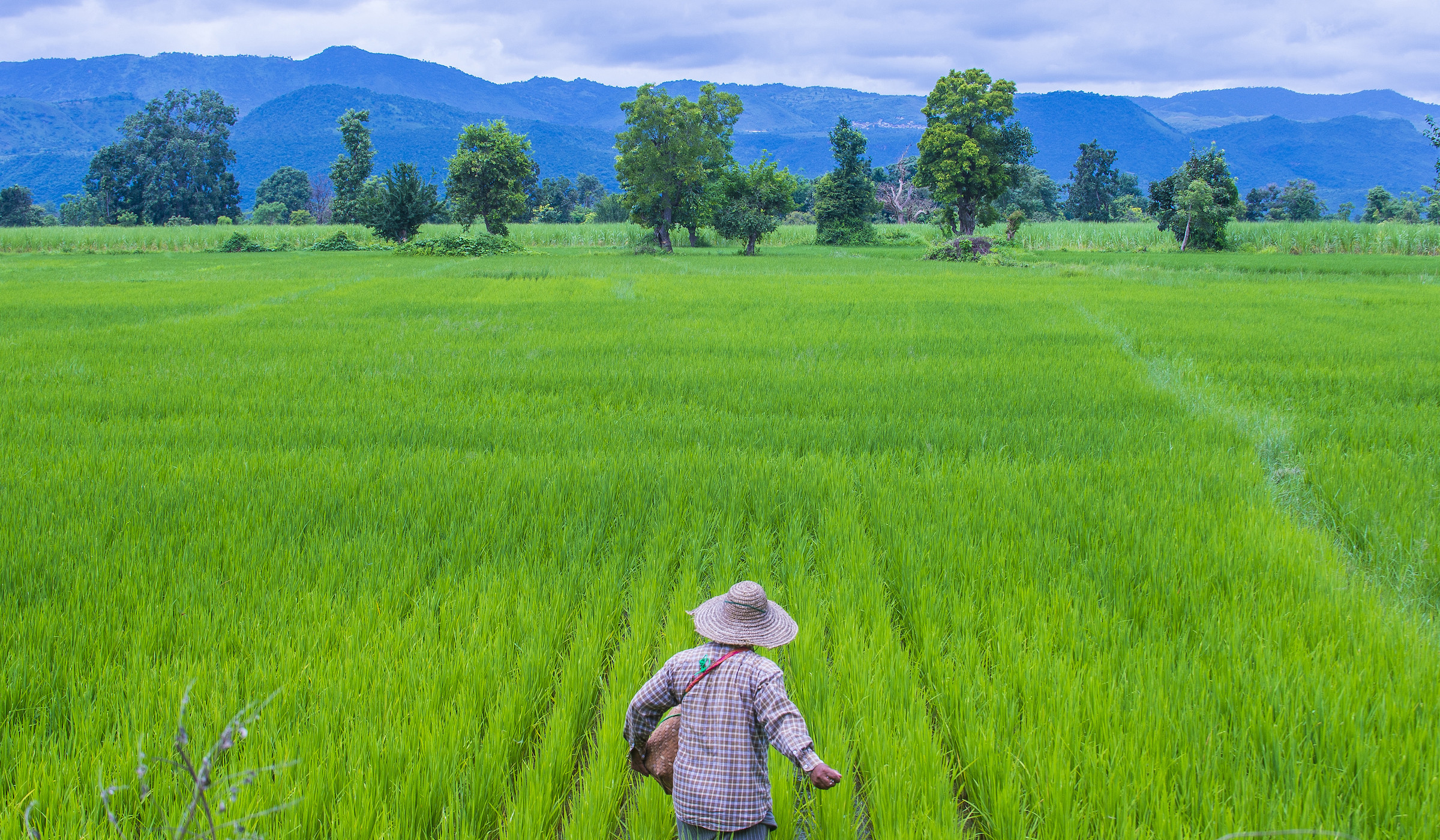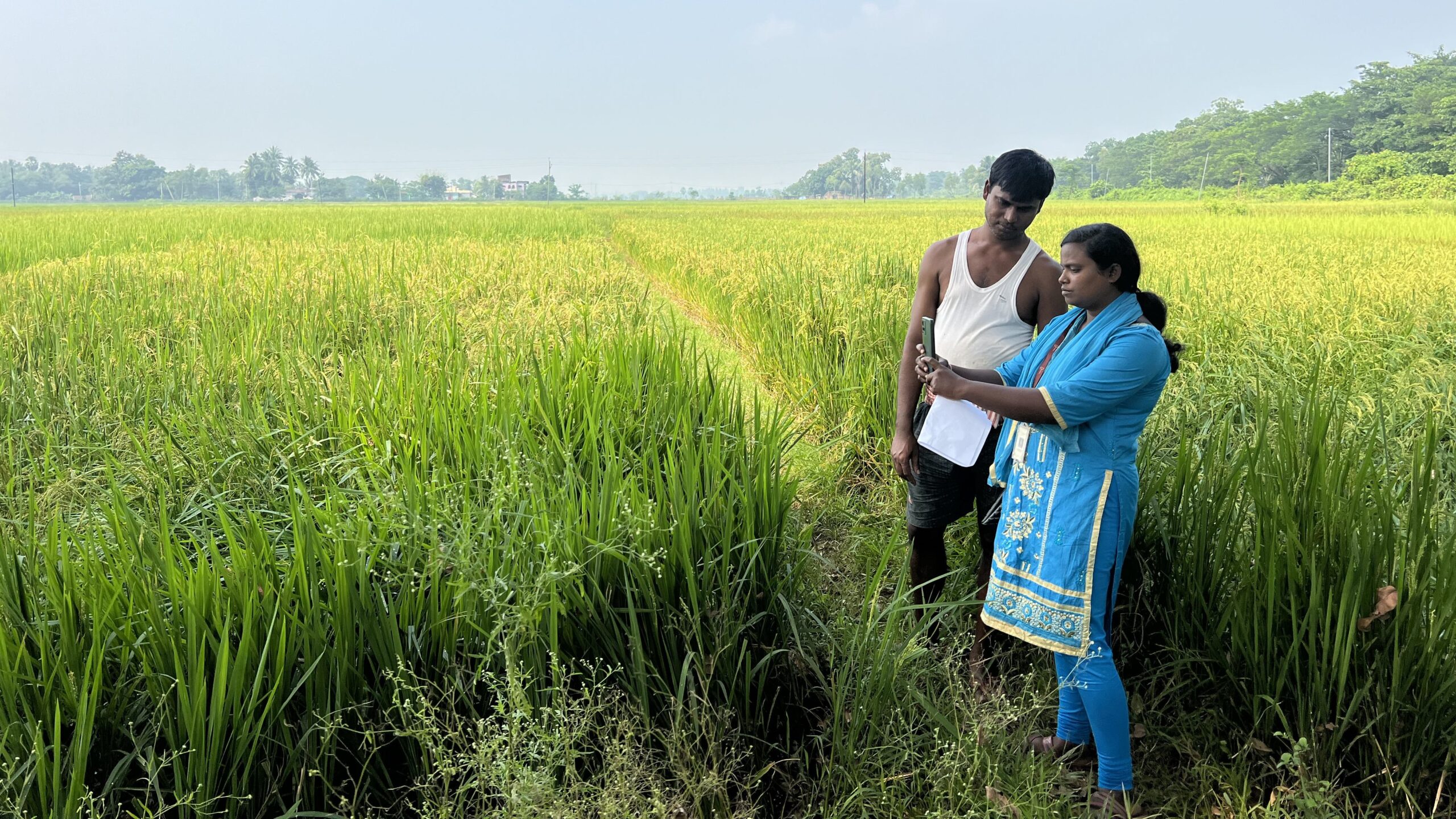History shows that as agricultural technologies have gradually improved, food production has grown. Yet adverse economic, political, or disaster-related shocks can disrupt this pattern. Since 2021, the political crisis in Myanmar has led to a deterioration in positive technological change, with particularly worrisome effects on smallholder farmers, a new study published in the journal Agricultural Economics shows.
In Myanmar, increases in violent events have caused significant downward shifts in rice production (Figure 1) and changes in reliance on agricultural machinery and other forms of capital—impacts that have hurt resource-poor, impoverished farmers of the country’s most important staple.
Figure 1
Evidence is scarce on how conflict affects technology adoption and agricultural productivity; data is difficult to collect in fragile contexts. Our study accessed large-scale, nationally representative household data on approximately 2,300 rice producers collected before and after the military coup in Myanmar in 2021 through IFPRI’s Myanmar Agricultural Performance Survey (MAPS), to determine the impact of political violence and turmoil on smallholder rice farmers’ useof agricultural technologies.
Results indicate that reductions in rice harvests were due to decreases by about 2%-3 % in the overall productivity of the inputs (such as improved varieties, land, and labor) used by farmers.
The study also showed that farmers’ rice productivity became more dependent on their agricultural capital, i.e., whether they owned or had access to agricultural equipment. This means the patterns of technological changes induced by the Myanmar conflict have dealt a double blow to the poorest smallholder farmers who own less agricultural capital.
What may have caused these shifts in productivity?
We argue that the coup reduced access to extension services, a key source of technology support for smallholders. Increases in violent incidents at the township level are significantly associated with reduced access to the extension services that help resource-poor farmers improve their productivity through better management skills. Losing access to such services may have made rice production more challenging—particularly for farmers without agricultural equipment.
To demonstrate this point, we show that adverse changes in production technologies were partially mitigated where violent events did not affect farmers’ access to mechanization services, for example, rural hire businesses that make machinery available for land preparation and harvesting. The research study also verified that these results consistently hold true between different methods of estimating the relationships between inputs and outputs, between Lower Myanmar and Upper Myanmar, and across varying intensities of violent events.
These findings suggest some lessons for minimizing harms to smallholders facing conflict-related shocks:
- Assure access to extension services: Restoring access to extension or related advisory services could help offset the adverse effects of conflict, particularly for farmers with less agricultural production capital. This could include providing direct support to keep agricultural extension services running (e.g., through mobilizing public and private-sector extension services) and exploring ICT-based extension.
- Improve access to credit and agricultural equipment or mechanization services: Facilitating affordable access to mechanization services can help farmers adjust more efficiently to the changes in rice production technologies associated with increased violent events, mitigating the lack of ownership of agricultural equipment.
The Myanmar coup of 2021 compromised the country’s rice production, tilting the use of rice production technologies in favor of farmers owning more agricultural capital and against farmers with less agricultural capital. In conflict-affected areas, strengthening technology and innovation policies (and other policies, including improving markets) can help to mitigate such impacts on farmers’ lives and livelihoods during conflicts and post-conflict periods.
Hiroyuki Takeshima is a Senior Research Fellow with IFPRI's Innovation Policy and Scaling (IPS) Unit; Zin Wai Aung is a Research Analyst with IFPRI's Development Strategies and Governance Unit; Ian Masias is a DSG Program Head based in Portland, Oregon, and currently manages the Feed the Future Myanmar Agriculture Policy Support Activity (MAPSA); Bart Minten is a DSG Senior Research Fellow and Program Leader of the Myanmar Strategy Support Program, based in Yangon, Myanmar.
Funding support for Myanmar SSP is provided by the CGIAR Research Program on Policies, Institutions, and Markets, the Livelihoods and Food Security Fund (LIFT), and the United States Agency for International Development (USAID).
Referenced paper:
Takeshima H, Aung ZW, Masias I, Minten B. Endogenous technologies and productivity in rice production: Roles of social instability in Myanmar since 2021. Agricultural Economics. 2024. https://doi.org/10.1111/agec.12855.







